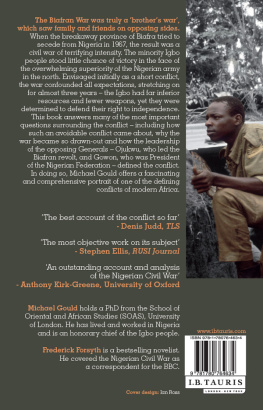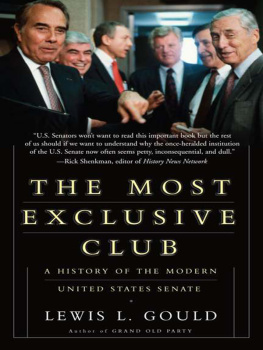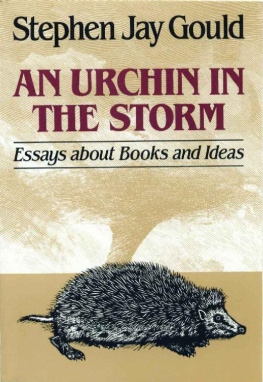
And the Heart Says
Whatever

Emily Gould


Free Press
A Division of Simon & Schuster, Inc.
1230 Avenue of the Americas
New York, NY 10020
www.SimonandSchuster.com.
Copyright 2010 by Emily Gould
All rights reserved, including the right to reproduce this book or portions thereof
in any form whatsoever. For information address Free Press Subsidiary Rights
Department, 1230 Avenue of the Americas, New York, NY 10020.
First Free Press trade paperback edition May 2010
FREE PRESS and colophon are trademarks of Simon & Schuster, Inc.
For information about special discounts for bulk purchases,
please contact Simon & Schuster Special Sales at
1-866-506-1949 or business@simonandschuster.com.
The Simon & Schuster Speakers Bureau can bring authors to your live event. For
more information or to book an event contact the Simon & Schuster Speakers
Bureau at 1-866-248-3049 or visit our website at www.simonspeakers.com.
Designed by Carla Jayne Jones
Manufactured in the United States of America
1 3 5 7 9 10 8 6 4 2
Library of Congress Cataloging-in-Publication Data
Gould, Emily
And the heart says whatever / Emily Gould.
p. cm.
1. Gould, Emily. 2. Authors, American21 centuryBiography. 3. Editors
United StatesBiography. I. Title.
PS3607.O8845Z46 2010
818'.609dc22
[B] 2009042229
ISBN 978-1-4391-2389-8
ISBN 978-1-4391-3734-5 (ebook)
Names and identifying characteristics have been changed and certain situations
and characteristics are composites.
To I.D. and W.D., D.G. and the memory of A.G.
Contents
And the Heart Says
Whatever
Introduction
One of my tasks at my first job had been to stand at the locked doors near the elevator bank and lead guests inside. I would stand in the doorway and wait and, when I heard the ping of the elevator reaching the publishing houses floor, Id start smiling. After shaking the guests hands I would lead them into the little waiting area where there were two armchairs and a little table next to a rack of our newest shiny hardcovers, and Id bring them coffee or tea or water and then go sit back down at my desk. Then, when my boss was readyhe let some people wait longer than othershed tell me to go and get them, and Id lead them through the maze of the office, chatting brightly over my shoulder. If the person or people walking behind me were men, I would be conscious of their eyes following the movement of my back, conscious always that I was like the books displayed in the waiting area: an ornament that demonstrated the companys power. The ritualistic aspect of this duty appealed to me the same way waiting tables had. Sometimes the guests would ask to use the restroom on the way to my bosss office and I would wait for them outside it until they finished peeing.
No one was waiting at the door to greet me when I showed up at the Gawker office for my job interview. If I hadnt gone to a party there a few months earlier, I would not have immediately known it was an office at all. Later, after I started working there, I learned that people would wander in off the street all the time, mistaking it for an Internet caf. The space would have made a good cafit was in SoHo, and there were plenty of laptopsbut as things were, there wasnt even a coffee machine.
I told one of the laptop people the names of the men I was there to see and sat down on the couch in the front of the office to wait. It was around lunchtime, and the smell of trapped gases given off by warm food in takeout containers filled the room. There was a low coffee table in front of the high-backed couch with piles of tabloid weeklies arrayed on it: Us, Star, In Touch. But they were back issues, much older than ones youd find in any doctors office. I flipped through one of them, looking up periodically to see if my interviewers were headed over, and during one of these glances my eye caught on a scarf hanging on a coatrack near the door. The scarf was black and gold, from H&Mit was the scarf Id lost on the night of the party! I went over to the rack and was in the act of draping it around my neck when they finally came over to greet me.
In another half hour or so I was walking out, wearing the scarf, wondering how things had gone. They hadnt asked a lot of questions; theyd mostly told me what the job would entail and asked if I thought I could handle it, and Id said sure. Throughout the interview Id wondered whether the laptop people, eating their takeout lunches from containers next to their keyboards at the long black tables just a few feet behind us, were listening to our conversation. Id made one joke that had gone over well: gesturing to the old tabloid magazines, Id bragged that in addition to my publishing expertise, I was such an aficionado of celebrity gossip that I could list the last five people Jennifer Love Hewitt had dated. Luckily no one had asked me to name them.
I got the job. I started bringing my laptop to the office and setting it down at the long black table among the other laptop people. Some were programmers who kept their heads turned towards their monitors for hours at a time as they immersed themselves in code. But the others were bloggers like me.
My job was to write twelve posts a day about media gossip, which meant anything unpleasant or otherwise intriguing about anyone who had power in any Manhattan culture industry. There had to be enough posts so that whoever was sitting at my old desk at the publishing house, and everyone in Manhattan like her, could read something new whenever boredom struck, as Id done. The posts could be as short as a few sentences explaining a funny photo or as long as a little article, a field guide about some person I was puncturing or promoting, or promoting by puncturing. Some posts were gleaned from the e-mails the site got from anonymous tipsters, who would forward us memos from their bosses, repeat rumors about their coworkers and higher-ups, and ask us to investigate news stories they found suspiciously lacking in salacious detail. I would investigate by quoting their anonymous allegations on the site and asking if anyone else knew anything more. The rule for tips was that if three people wrote in about the same thing, we probably ought to do a post about it, no matter how dumb it seemed. My coworkers and I would claim the tips we were interested in following up on by forwarding the e-mail back to the tips address with the word TAKING appended. Sometimes, especially if a tip seemed like it would be easy to make into a post just by tacking on a little context, a joke, and the word allegedly, more than one of us would TAKE it simultaneously and then we would have to figure out who was better suited to writing up the item, or whod replied first, and the race to claim the good tips meant that our attention was continuously divided between the post we were currently writing and the constant hunt for the post wed write next. Another attention-suck was the useless but irresistible impulse to skim the dozens or even hundreds of comments on my previous posts. Most of them were poisonous to some degree, and many of them seemed like they might be from young assistant types who knew more than I did, because they were still working at these companies.
Next page

















